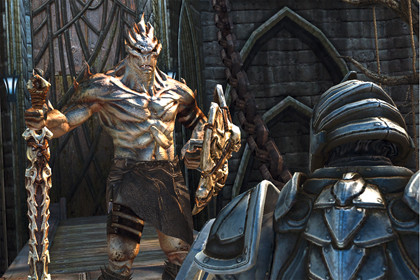How to make money from app development
There's another way you can make money from free apps, but you have to be in for the long haul and you could be disappointed at the end.
Some creators of totally free apps are concentrating on the advantages that come with building a social network. One such app is Instagram, a photo-sharing app that hit the headlines in December and already has investors showing a keen interest.

INSTAGRAM: Photo-sharing site Instagram had a million people download its app within three months of its launch
We asked Josh Riedel, Instagram's Community Manager, whether the company expected the app to take off as it did:
"We never expected the overwhelming response we received," he said. "We went from literally a handful of users to [being] the number one free photography app in a matter of hours after our launch. In just three months, over a million people are using Instagram as a way to communicate with their friends through photos. We've also seen huge adoption internationally, and as a result, we've translated the app into seven different languages."
He was a little less forthcoming about exactly how the company plans to make money from the app. "Our focus is on producing the best possible product for users and growing the user base," he explained. "We have many potential business models, but all of them make sense at a larger scale."
In-app purchasing is yet another way for developers to make money from free apps. This begins with you offering your app for free so it can get to the greatest number of people possible. Then, once you've proved that it's something people want in their lives, you offer them the chance to extend its functionality for a small fee.
Sign up for breaking news, reviews, opinion, top tech deals, and more.
With games, this could mean granting access to more levels, removing the advertising bar, or even just kitting the player's character out with personalised clothes or better weapons. Utilities would simply offer more functions, or the ability to share data with more devices.
With in-app purchasing, you're advertising to the most direct market possible - people who have your app and are using it.
Bad Piggy Bank
In-app purchasing is clearly of interest to the big players in free apps, as the planned appearance of the Bad Piggy Bank in the Android version of Angry Birds demonstrates.
The Bad Piggy Bank is an in-game payment model, which lets users remove advertising from the free version of the game or purchase the upcoming Mighty Eagle update. Rovio is currently testing it in Finland, and provided it can negotiate the necessary deals with mobile phone operators in other territories, it will be making its way elsewhere too.
A major advantage of getting payment this way is that the cost of the additions is simply added to the user's phone bill, so no credit card is needed. Rovio is also planning to let other Android developers use the technology.
With all these possible routes to make money from free apps, what about those developers doing it the old fashioned way and putting their apps up for sale?
There are a few things to consider. Android and Apple will charge you 30 per cent of your revenue for hosting your creations on their app markets. This is attractive in that if you don't sell anything you lose nothing, but if you do, you only see 70 per cent of what you make.
Also, with Apple, you have to put up with its submission process, meaning all your hard work could be for nothing if your app is rejected. Lastly, with the way the app stores are structured at the moment, it takes a lot to knock those at the top from their lofty perch, because they get the most exposure and are likely to be the ones new users download.
Building the hype
Playing the long game in building interest in your app is a sensible business model, but it's possible to take a shortcut to success by piquing the media's interest.
Chair Entertainment, creator of the role-playing game Infinity Blade, managed to do just that by creating the most impressive looking game ever seen on a phone. It uses the Unreal game engine - the same platform behind the likes of console and PC games such as BioShock.

BIG MONEY: Infinity Blade is the fastest app to make $1million to date - it took just four days
This led to a lot of hype before its release, which may account for the fact that Infinity Blade is reportedly the fastest game to make a million dollars - it was just four days, halving the previous record held by Cut the Rope.
To find out how Infinity Blade achieved this remarkable feat, we spoke to Donald Mustard, Creative Director of Chair Entertainment, about how useful the hype was in generating sales.
"Well it's actually a kind of a danger too," he said. "It was a worry that people were expecting a lot, but we were just making the best game we could."
Mustard was coy about how much the game cost to develop. When we mentioned that Angry Birds reportedly cost $100,000 to make, he replied, "Blade cost a lot more than that! Mostly because it's 3D, which takes a lot of time."
So does he think it was a risky strategy to invest so much money on a £3.49 phone app? "It was a calculated risk," he explains, "although we didn't really know."
Dot com 2?
With millions being generated by apps big and small, are they truly the future, or are we just experiencing the same kind of buzz we saw when the internet started to take off? Is the app trend all hype and no real substance?
There's undoubtedly a lot of silly money being thrown about by venture capitalists and investors in the hope of being in at the start of the 'next big thing', but with real, substantial profits now being generated, and proven ways to monetise apps being explored, there seems more hope that we can avoid financial meltdown than last time.
Of course, the surest way to make money from apps is to own Apple or Google - they're the ones making 30 per cent on all app sales without lifting a finger.
---------------------------------------------------------------------------------------------------
First published in PC Plus Issue 306. Read PC Plus on PC, Mac and iPad
Liked this? Then check out How smartphones and tablets are taking over
Sign up for TechRadar's free Week in Tech newsletter
Get the hottest tech stories of the week, plus the most popular reviews delivered straight to your inbox. Sign up at http://www.techradar.com/register